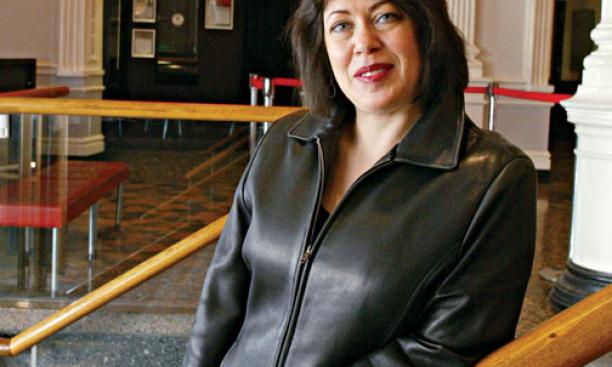

In 2002, as an analyst with the New York State Council on the Arts, Jonas co-authored a groundbreaking study whose findings — that only 17 percent of the plays produced on the nation’s main stages were written by women, and only 16 percent had female directors — stunned the theater community.
“Even the women I know who are in the field were shocked by the depth, breadth, and height of the underrepresentation,” says Jonas. “Until we actually quantified it, I don’t think anyone really knew how bad it was.”
The situation improved in the immediate aftermath of the report, but with no organization committed to collecting follow-up statistics, progress stalled, Jonas says, as the forces holding women back — among them, unconscious biases and male-dominated professional networks — reasserted themselves.
Recently she persuaded the League of Professional Theatre Women, of which she is a member, to begin gathering employment statistics on women in theater, and she hopes that this effort eventually will result in a regular report card whose findings may lead to further change.
Since leaving Princeton, where she majored in comparative literature and spent her free time acting, Jonas has pursued a winding career path. In addition to spending a decade at the state arts council, she has worked in management and dramaturgy at a number of theater companies; translated plays and adapted material for the stage; co-edited Dramaturgy in American Theater: A Source Book, the standard textbook in the field; and taught and lectured widely. Much of her work as educator, grantmaker, and artist has focused on making theater more diverse and inclusive for both women and minorities.
As she waits for new statistics measuring women’s status in the theater world, Jonas is attacking the problem from another direction: This semester, she is teaching an undergraduate course at New York University on classic plays by women — not only such relatively well-known figures as 17-century dramatist Aphra Behn and Lorraine Hansberry, but also more obscure writers like Joanna Baillie, Susanna Centlivre, and Elizabeth Inchbald.
In the years she spent earning her 1989 doctorate in dramaturgy from Yale, Jonas never read a pre-1940 play by a woman, and ignorance of literary foremothers makes it harder for contemporary female playwrights to insist upon their right to be produced, she says. “The absence of legacy is so intimately tied to this issue of underrepresentation that you can’t do one without the other.”
Deborah Yaffe is a writer in Princeton Junction, N.J.
